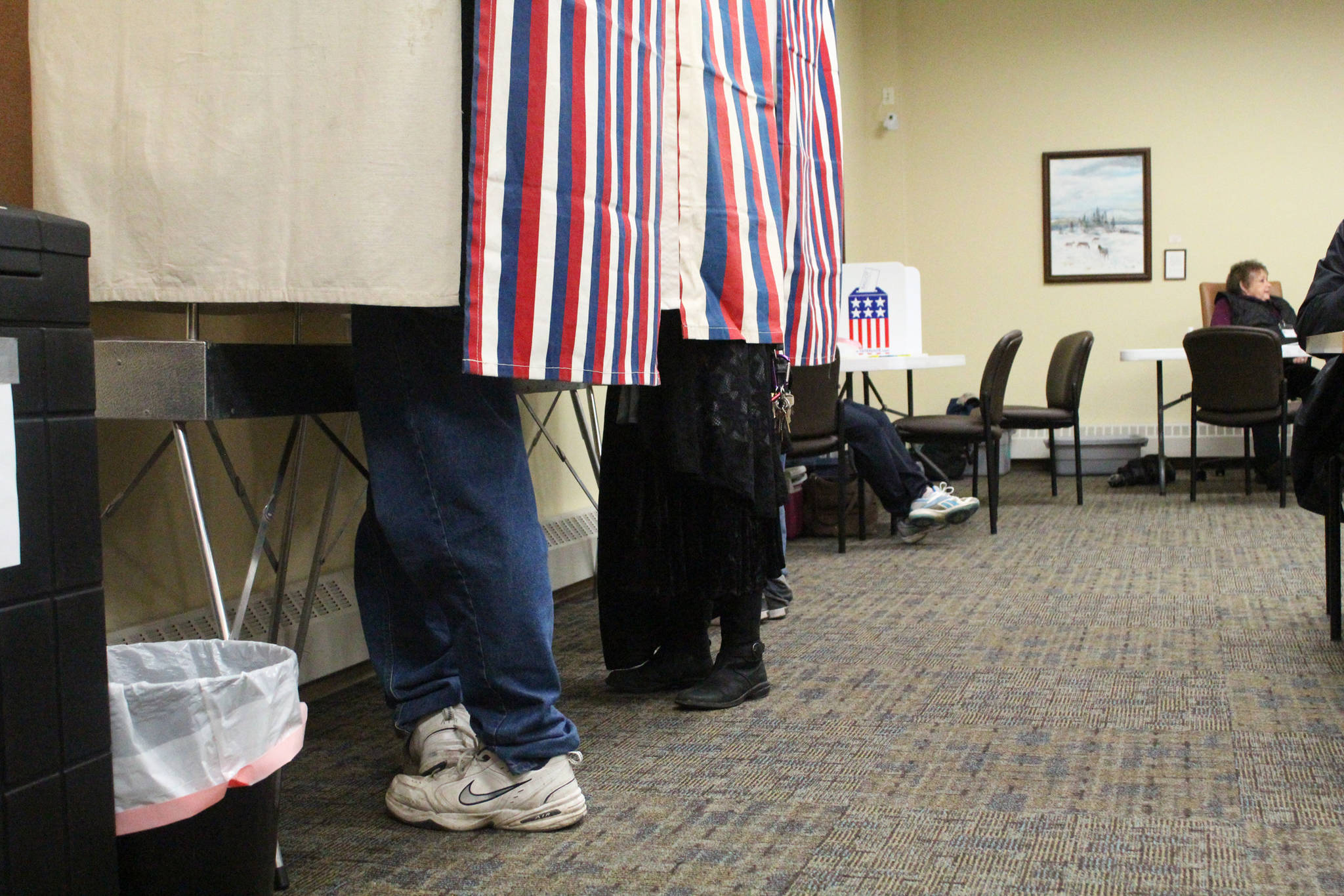Alaska is looking into conducting more of its elections by mail, though it may not completely convert right away.
Interest at the state and local government levels increased after the Municipality of Anchorage saw a massive jump in its voter turnout during its April 3 election, which was conducted entirely by mail. However, the cost also reportedly increased, in part due to the printing and mailing of ballots.
The Alaska Division of Elections and the Election Policy Work Group plan to meet May 8 and 9 in Anchorage to discuss four possible new vendors for the state’s ballot systems, all of which would involve a hybrid vote-by-mail system, according to a press release issued Thursday.
“Alaska purchased its traditional precinct-based, optical scan system in 1998 and it needs to be updated,” the release states. “While the system is still fully operational, federally certified, and accurately counts ballots, its expected life span was 20-25 years, and replacement parts are no longer manufactured.”
The working group is expected to make recommendations to Lt. Gov. Byron Mallott this year, though any changes to the precinct-based system will require statutory changes, according to the news release.
The Kenai Peninsula Borough already uses a partially hybrid in-person and by-mail system. Some of the smaller or more remote communities — including Cooper Landing, Fox River, Hope, Moose Pass, the communities south of Kachemak Bay and Tyonek — already vote by mail. The borough does provide an in-person voting station when the clerk’s office can find someone to work the election site, but that’s not always possible, said Borough Clerk Johni Blankenship.
The borough has considered going to by-mail only elections before, though voters shot down an advisory vote to do so, she said.
“It’s something I’ve been wanting to do for a while because we already do a hybrid system,” she said.
The districts where the borough administers the election by mail by and large have seen an increase in voter turnout, she said. In the most recent regular election on Oct. 3, 2017, some of the by-mail districts had turnout much higher than the borough’s overall turnout. Cooper Landing had a 33.2 percent turnout, while Hope had a 32.8 percent turnout compared to the borough-wide turnout of 25.63 percent. It’s not an across-the-board trend, though — Tyonek and the Kachemak Bay communities both saw turnouts of less than 6 percent. Those communities regularly tend to have lower turnout, Blankenship said.
She said she would not recommend the borough convert to an all-mail system but rather follow the state’s lead. Continuity between election systems is important for voters, she said.
“For us as a borough, I don’t think we’re going to make a decision until the state makes a decision,” she said. “The last thing I want to do is make it more complicated for voters.”
Many states are considering converting to by-mail elections or have already done so. Washington, Colorado and Oregon already vote entirely by mail, and California will begin holding its elections entirely by mail this year, according to the National Conference of State Legislatures. Many of the geographically larger Western states, particularly those with diffuse or sparse populations, are looking at the mail option as way to save costs, said Wendy Underhill with the National Conference on State Legislatures.
“There seems to be more of a sense of this may work for them, and I think those states might say to you that they’re trying to do this in a way that saves money,” she said. “…You can’t easily make a blanket statement about this costs more or this costs less. You have to consider it with a current service delivery that you’ve got, and that would include all the costs about equipment and poll workers and printing.”
Though Anchorage saw a significant cost increase, that may not always be the case, Underhill said. Oregon, Washington and Colorado have all said they save money on elections through the mail system. There are a number of factors influencing voter turnout beyond just the polling system, too, and by-mail may not suit everyone. The Native American Voting Rights Coalition stated in a January 2018 white paper that mailed ballots may present a problem for some Native American communities may not have strict mailing addresses for the ballots to arrive and may not understand how to vote, which presents an obstacle.
There is mixed research on whether voting by mail increases turnout, but Underhill said the larger trend shows it at least doesn’t seem to decrease turnout.
“There is solid research data… that turnout does go up, which makes sense that all those folks who have it show up in their mailbox, they say, ‘Sure, why not?’ and they may not have gone to the polls,” she said. “…The people in Oregon and Washington and Colorado will say that by mail is part of their high turnout. I will put it to you that it does make a difference in small elections.”
Reach Elizabeth Earl at eearl@peninsulaclarion.com.

